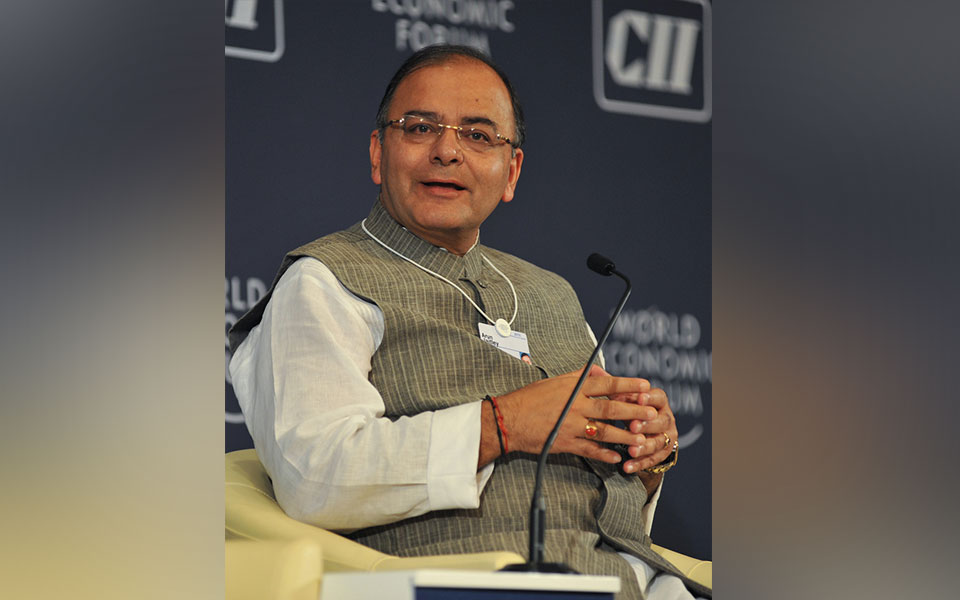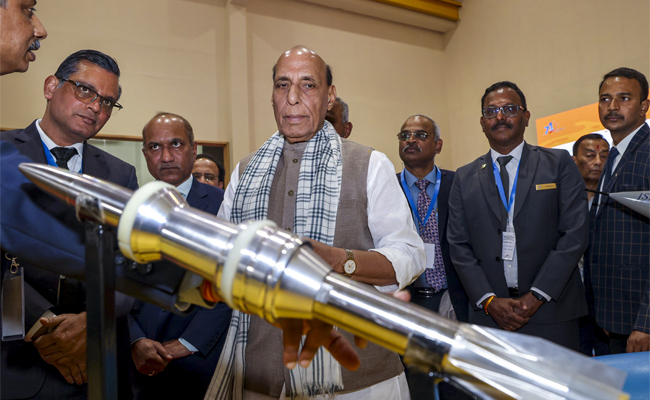New Delhi: The pink coloured Economic Survey document tabled by Finance Minister Arun Jaitley in Parliament today recommended that India must confront the societal metapreference for a son, observing that the adverse sex ratio of females to males has led to 63 million "missing" women.
The colour of this year's survey cover was chosen as a symbol of support for the growing movement to end violence against women, which spans continents.
Laying special emphasis on gender development, the Survey cautioned that on several indicators, notably employment, use of reversible contraception, and son preference, India has some distance to traverse despite the country's economic progress.
The Survey states that just as India has committed to moving up the ranks in Ease of Doing Business indicators, a similar commitment should be endeavoured on the gender front.
The percentage of working women has declined over time from 36 per cent being employed in 2005-06 to 24 per cent of women employed in 2015-16, pointed out the Survey.
It acknowledges that Government's 'Beti Bachao, Beti Padhao' and 'Sukanya Samridhi Yojana' schemes, and mandatory maternity leave rules are all steps in the right direction, pointing out that measures such as increasing maternity leave will offer support to women in the workforce.
Given these observations, the states and all stakeholders have an important role to play in increasing opportunities available for women in education and employment, it said.
As per the Survey, nearly 47 per cent of women do not use any contraception, and of those who do, less than a third use female-controlled reversible contraception.
The Survey highlighted another phenomenon of son metapreference which involves parents adopting fertility "stopping rules" having children until the desired number of sons are born.
"This metapreference leads naturally to the notional category of 'unwanted' girls which is estimated at over 21 million," says the Survey.
Consigning these odious categories to history soon should be society's objective, opines the Survey. It also provides an assessment of India's performance on gender outcomes relative to other economies.
However, the Survey noted an improvement in average levels of 12 out of 17 variables in India over time. While 62.3 per cent of women in India were involved in decisions about their own health in 2005-06, the number increased to 74.5 per cent in 2015-16.
The percentage of women who did not experience physical or emotional violence also increased from 63 per cent to 71 per cent, whereas the median age at first childbirth also increased by 1.3 years over ten years.
The Survey noted that the North-Eastern states have been consistently outperforming others on the development parameters related to women, while hinterland states are lagging behind.
However, surprisingly, some southern states such as Andhra Pradesh and Tamil Nadu fare worse than expected given their level of development, it said.
Let the Truth be known. If you read VB and like VB, please be a VB Supporter and Help us deliver the Truth to one and all.
Bengaluru (PTI): Karnataka Commerce and Industries Minister M B Patil on Monday asserted that Aequs continues to expand in the state and that its proposed investment in neighbouring Tamil Nadu was a business decision aimed at diversification, not a shift away from Karnataka.
Reacting to criticism on social media over reports that the Karnataka-based firm had signed a major investment deal in Tamil Nadu's Krishnagiri district for setting up a specialised aerospace and defense manufacturing cluster, he said the state government was fully aware of the company's plans and remained confident about its long-term commitment to Karnataka.
"While we welcome every major investment in India, would like to clarify a few points," Patil said in a post on 'X'.
Aequs was significantly expanding its footprint within Karnataka, including a Rs 3,000 crore investment in Kolar for electronics manufacturing.
"Its recently approved Rs 1,500 crore ECMS project will also be grounded in the state. Karnataka remains central to its long-term strategy," he said.
Patil added that the government had prior knowledge of the TN proposal.
The government was already informed and aware that the TN investment is a business decision aimed at geographic diversification and de-risking operations, not a shift away from Karnataka.
"Healthy competition between states strengthens India's manufacturing ecosystem," he said.
Emphasising the state's focus on high-technology sectors, Patil said, "We remain committed to deepening Karnataka's leadership in aerospace and advanced manufacturing, and our engagement with industry partners is strong and ongoing."
The Aequs Group has pledged Rs 4,000 crore to bolster Tamil Nadu's aerospace manufacturing capabilities at the SIPCOT-Shoolagiri Industrial Park in Krishnagiri district.
The group proposes to establish a specialised aerospace and defense manufacturing cluster for the production of aircraft engines, gearbox components, and precision engineering parts. This initiative is expected to provide employment to 7,000 individuals.





